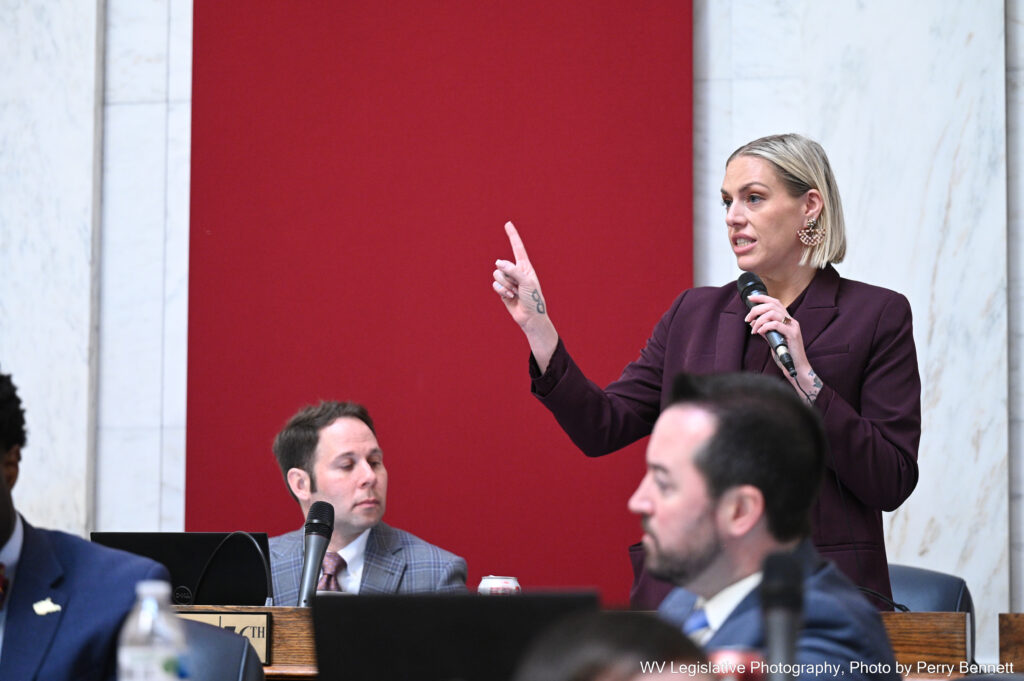The Women’s Bill of Rights, House Bill 5243, seeks to define sex-based terms used in state law and protect single-sex spaces. It was on second reading in the House today.
The bill was also discussed in a public hearing this week in which many citizens voiced their opposition and support. Opponents say the bill is anti-transgender, does nothing to protect women and is written by out-of-state lobbyists. Proponents say it will protect young girls in locker rooms and other shared public spaces.
Del. Kayla Young, D-Kanawha, introduced an amendment to the bill that included removing sales tax on feminine hygiene products, requiring implicit bias training in a Dignity in Pregnancy Act, and allowing every person who is an adult, regardless of sex to make and carry out their own health care decisions, and establishing eight-week paid parental leave for state workers, followed by four weeks of unpaid leave.
The amendment also removed the exemption in state code for marital rape, among other code changes.
“So I wanted to do an amendment, and I wanted to talk about what a Women’s Bill of Rights could look like if women had equal rights under the law,” Young said. “We want to make sure that women have access to economic opportunities, that they have the ability to determine their own futures, and just promote general health, wellbeing and good economics.”
After some debate, the House went into a half-hour recess and Del. Brandon Steele, R-Raleigh, moved to amend the amendment, removing all of the code except the portion related to marital rape.
That amendment passed with all present Delegates in the affirmative, with 91 yeas, 0 nays and 9 not voting.
There were also other amendments presented by Democrats that were all struck down.
Del. Evan Hansen, D-Monongalia, moved an amendment that he said would mitigate “unintended side effects” of defining sex and in state code.
“But one of the unintended side effects of this bill is related to the definition of equal,” Hansen said. “What’s the definition of equal in this bill? The definition of equal is equal does not mean same, or identical with respect to equality of the sexes equal does not mean same or identical.”
Del. Tom Fast, R-Fayette, stood in opposition to Hansen’s amendment, saying the bill is meant to affect the Human Rights Act.
“I would urge rejection of the gentleman’s amendment,” Fast said. “This is a statutory construction bill. It is intended to cover the entire West Virginia State Code including the Human Rights Act.”
The bill was moved to third reading and following the debate, the only amendment that passed was the section removing the exemption for marital rape.























